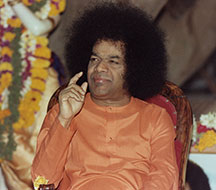
Desireless state is true bliss
Bangalore, Brindavan (Ugadi )
Description
Human heart in its pristine state is highly sacred and human birth is difficult to attain. Janthunam narajanma durlabham (out of all the living beings, the human birth is the rarest). Having attained such a precious life, man is not making any effort to live like a true human being. Today he has become a bundle of desires. He is spending all his time and effort in fulfilling his desires. He is under the mistaken notion that fulfillment of desires will confer happiness on him. He should realise that only annihilation of desires will lead him to ultimate bliss. True happiness lies in the state of desirelessness.
Topics
-Desire
-
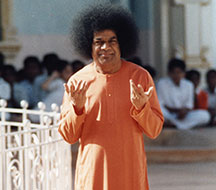
Limitless human desires are the cause for unrest
00:02:46Many people due to the impact and influence of the Kali age, perceive the relationship with the divine as a bodily relationship and are given to many doubts. This is because of the development of worldly feelings and approach. What is meant by ‘worldly feelings’? The worldly feeling is associated with the five sensory elements. This nature is made up of sensory pleasures and the spiritual world is one of sacrifice and renunciation. When one develops the spirit of sacrifice, then alone can one truly be entitled to enjoy. That is why it is said, “Immortality can be obtained only by sacrifice”. But today man is ready for giving up. Today’s man spoils his head with excessive desires. There is no limit for desires at all. Hence there is a decline in human life. Mind is also polluted. The word is full of lies. Wherever he sets his foot, there is injustice; the thoughts too are devoid of divine approach; there is no limit for man’s desires. The life force or the Chaitanya is on a decline; all the goodness is fast disappearing. Enmity and jealousy are on a rise. Desire and anger have bound man helplessly. Truly, the human nature is not to be found in man. The man today lives life without the humanness. A man can be called truly a man when he has the human quality in him. What is this human quality? Following the dictates of the heart is the quality of humanness. One must follow one’s conscience.
-
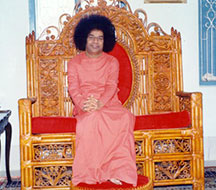
Increased desires leads to diminishing of will power
00:04:00Fame can be compared to a river. A river may originate as a trickle but as its flow increases it grows wide and deep. It is the thought that develops the will power in man. The power of speech, the power of discrimination, the power of intellect, the power to take decisions all originate from will power. When one has pure and sacred will power, one can even attain the position of Indra, the Lord of the celestials. Everyone has the will power. What is the reason behind the diminishing will power in man? As desires increase in man, his will power decreases. The will power in man is haphazardly due to the unlimited desires of man. Man does not enjoy the peace and prosperity entitled to him because of the weakening of will power in him. One can try to practice certain things to get a firsthand experience of the above said fact. One may have twenty desires like the desire to drink tea, coffee, liquor, to smoke, to play cards etc. When one gives up the desires one by one, one can see a growth and improvement in one’s will power. Hence it is the desires that are responsible for the increase or decrease in one’s will power. How can one control the desires? One must observe and enquire into certain things: where was the world before one’s birth? Every being that takes birth must die. Where is the world after one’s death? This world comes and goes and exists between birth and death. It is sheer foolishness to crave for such a transitory world. This world can be compared to a mirror. One’s reflection is seen in the mirror so long as one stands in front of it. One cannot see one’s reflection if the mirror is removed. One must realise that it is not worthy to waste the precious life for the transitory, impermanent, unstable worldly desires.
-
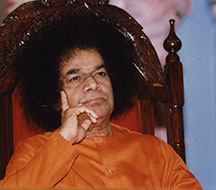
Limitless desires of man
00:00:33People say that they want to become a rich millionaire, but who is a ‘millionaire’? ‘Who is the biggest man in this world? He who has much satisfaction is the biggest man!! Who is the poorest man in this world? He who has much desire is the poorest man in this world!!’ With so many desires one cannot be rich.
-
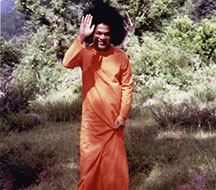
Less Desires, More Comfort
00:01:00Don't have too many desires. Reduce your desire. Grow desire for God. If you have desire for God, you would be very happy. The worldly desires, responsibilities, obligations will be naturally more and more. You think that you are unburdening yourself, it’s a mistake. The more desires you have, less happier you would be. Once the desires decreases, the bliss increases. Why are you not happy? Because desires are growing, increasing day by day and so you are not happy. When once you put a check or a ceiling on the desire, you will be happy more and more.
-
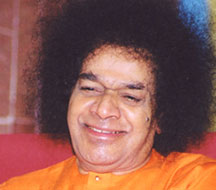
All happens for our own good
00:01:14Desire may be fulfilled or not. Consider everything is for your own good. I desired a work done, I couldn't get it done. Then why should you hate because your desire is not fulfilled? And then you will lose all positive results there. The difficultly, the failure is for my own good. There is good, something good even in this loss. Anything might happen is for my own good. The good and bad go together. Nothing can happen without these two. So, there cannot be good without bad existing. So, there is bad in good and good in bad. We should consider both equally. The pain and pleasure, the profit and loss, they exist. The pleasure is an interval between two pains and pleasure lies between two pains.
-
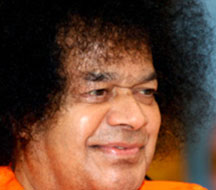
Man's quest must be for God rather than for food
00:03:36In defining a good man, Vemana said that the individual who suffers if he is hungry, who harbours evil, who is burning with anger, and who indulges in promoting intrigue may be said to be a bad man. All others are good people. That man should spend his energy to relieve his hunger has been looked upon with ridicule by the poet Vemana. He draws attention to the fact that even animals and birds do not spend so much effort and time to get relief when they are hungry. When that is so, how is it that man, who is superior to the animals and birds, spends so much time and effort in search of his food. Who provides the food for the birds in the forest? Who feeds the animals in the forest when they are hungry? Who gives water to the trees that thrive in the forest? God, who finds the food for the frog that is trapped between a pair of large stones, will certainly provide food for the human beings, who are so close to Him. Under such circumstances, it is not right that man should hanker after food. On the other hand, he should go after realisation of truth and develop faith in God.
-
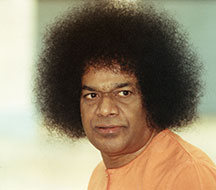
Man's pride in developing sensual pleasures
00:02:36There are many people who do not think either of this life or the life after death. Such people are very many in numbers. Even if they think sometimes about these matters, the people who understand what it is to sacrifice, give up even small things in the performance of their duty, and think of doing good so as to improve their lives, are very few in number. When we look at such people, we make the mistake of regarding them as great people. Looking at people who spend all their time and wealth in deriving pleasure for themselves and in decorating and beautifying their own bodies, we again make the mistake of thinking that they are very intelligent people. As time goes on and as bodies grow older in respect of people who spend their lives and money in fulfilling their sensory desires, we still consider them as men worthy of emulation.
Topics
- Analogies
- Atma
- Attachment
- Balvikas
- Bhaja Govindam
- Bhajans
- Body
- Character
- Company
- Compassion
- Culture
- Day to day
- Devotees
- Devotion
- Dharma
- Discipline
- Discrimination
- Doctors
- Education
- Faith
- Festivals
- Forbearance
- Gayathri
- God
- Gratitude
- Guru
- Health and healthcare
- HIS Life
- Human values
- India
- Karma
- Love
- Mahabharata
- Man
- Meditation
- Mind
- Music
- Musicians
- Namasmarana
- Nature
- Parents
- Philosophical concepts
- Pleasure and Pain
- Practice
- Ramayana
- Religion
- Sacrifice
- Sadhana
- Sai Organization
- Saints
- Sathya
- Science
- Senses
- Service
- Sevadal
- Shanthi
- Shirdi Baba
- Society
- Spirituality
- Students
- Thoughts
- Time
- Unity
- Upanishad
- Vedas
- Vices
- Yoga
- Youth
